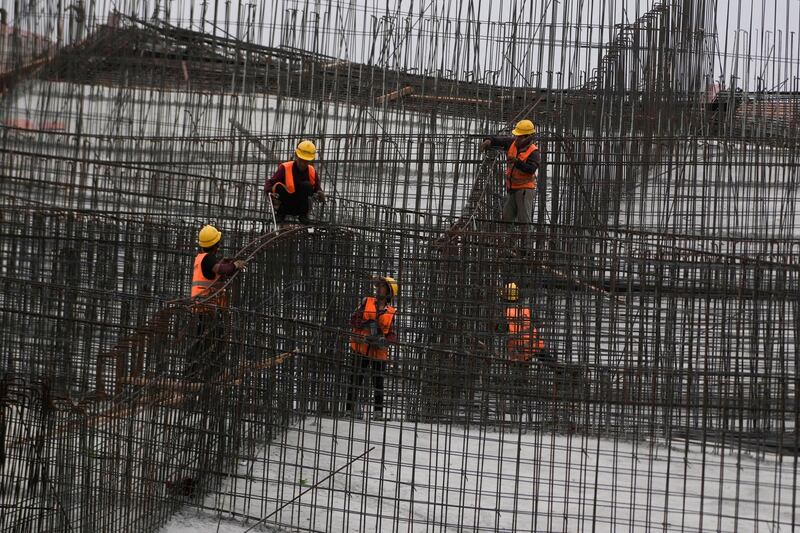The prices of some luxury apartments in Shanghai have tumbled in the wake of the Communist Party congress, with wealthy Chinese and Taiwanese owners looking to offload their assets amid what they see as a major shift in economic policy, Radio Free Asia has learned.
"People are dumping apartments; prices of many luxury homes have fallen by 30 or 40 percent compared with market prices [before the party congress]," Shanghai real estate broker Zhao Ting told RFA in a recent interview.
"They are all getting out; they are worried it will be too late if they don't sell now," Zhao said.
Online advertisements showed the "negotiable" asking price for a large penthouse in the Chateau Pinnacle development, the former residence of actress Carina Lau, at 35,990,000 yuan after the party congress, compared with an earlier listing of 60 million yuan in September.
Meanwhile, a luxury penthouse in the city's Finance Street Rongyu development was listed with an asking price of 50 million yuan on Oct. 23, compared with 55 million yuan last month.
The changes come as Communist Party leader Xi Jinping begins a third and potentially indefinite term in office, pledging to take greater state control of the economy, removing power and influence from the private sector and curbing private wealth.
‘Common Prosperity”
Xi's "common prosperity" and "Chinese-style modernization" policies refer to the broadening of an ongoing crackdown on private tech giants like Alibaba and Didi Chuxing, using regulatory investigations, Communist Party committees in major companies and direct orders from the top.
Last year, Chinese regulators blocked a planned U.S. $35 billion initial public offering for Alibaba founder Jack Ma's fintech Ant Group in Hong Kong, and ordered the operators of ride-hailing app Didi Chuxing to delist from the New York Stock Exchange.
According to Zhao Ting, most of Shanghai's wealthiest people have already left the country, or at least transferred their assets overseas.
Those still trying to sell off luxury property in the city had likely failed to realize the likely implications of Xi's ideology and leadership for their personal wealth and privilege.
"There is no longer any illusion of hope for the future under the current leadership," Zhao said. "And it has become clear to everyone that they will continue to develop the zero-COVID policy” of constant mass-testing, constant tracking of individuals' movements and restrictions on personal freedom.
Zhou Ning, a real estate broker in the central province of Hubei, said similar patterns are visible in other Chinese cities and provinces, with sell-offs under way in Wuhan, Beijing, Jiangsu and Zhejiang.
"Large numbers of rich people are now selling off their assets in China, especially wealthy people in Shanghai and Beijing," Zhou told RFA, adding that they are adapting to the new reality with "a flexible attitude."
"A lot of their privately owned assets are being bought up by state-owned enterprises," he said. "Some of my friends have bought up hotels and restaurants from Taiwanese."
"Taiwanese people feel that there has been a change of policy direction, so they are selling."

He said the nationalization of assets will continue to spread.
"Assets have to be nationalized now," Zhou said, citing the old days of the planned economy before mass state-sector layoffs in the 1990s, in which "nobody had to pay to get an education or see a doctor."
"Since the Chinese Communist Party's 20th National Congress, they are adopting a new planned economy model."
The business news website Yicai reported on Sept. 27 that local governments across China are encouraging state-owned enterprises to buy up suitable residential property to use as affordable housing for local people.
Notices ordering group purchases have been posted on official government websites in the eastern city of Wenzhou and the Shanghai provincial capital Jinan, order the purchase of commercially available housing for housing reserves and lease purposes, it said.
China's real estate sector has sparked social unrest across the country in recent months, with mortgage boycotts in protest over unfinished buildings spreading more than 300 locations across the country, and forcing the Chinese government to move to shore up confidence in the banking sector.
Translated and edited by Luisetta Mudie.
